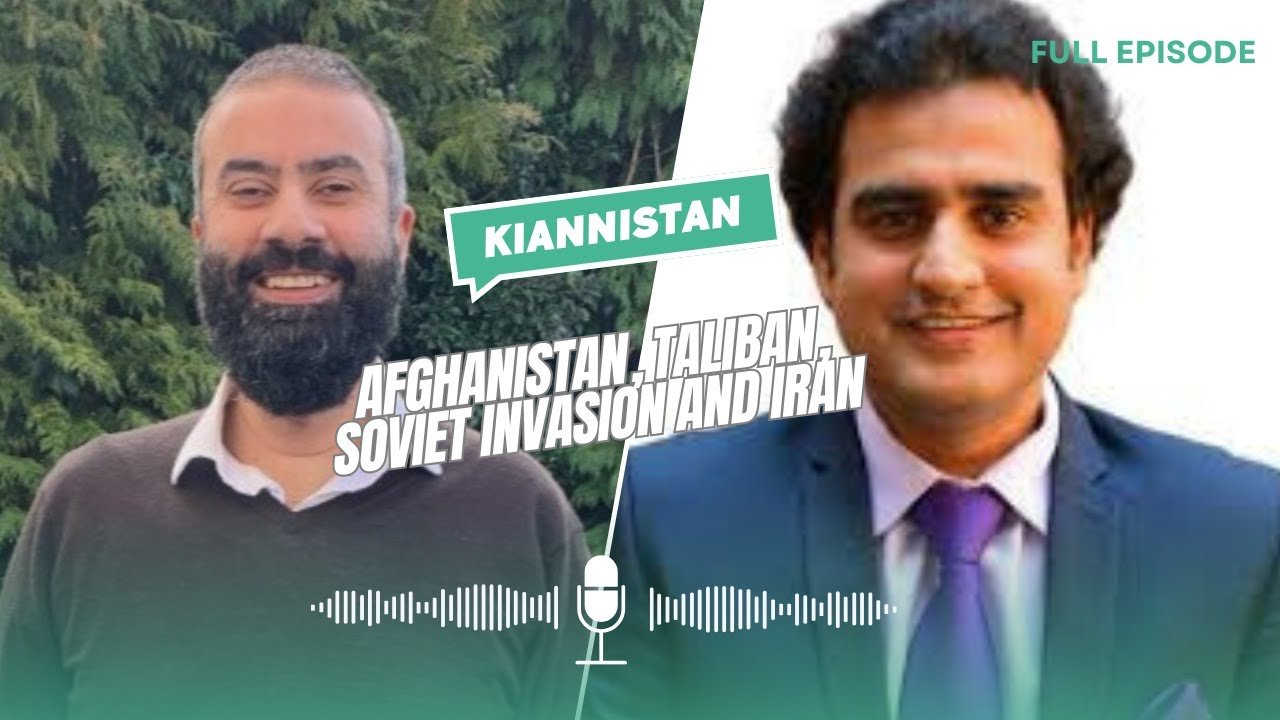Kianistan with Dr. Tauqeer Hussain – Afghanistan, Taliban, Soviet Invasion and Iran
In this exclusive conversation with Kianistan, Dr. Tauqeer Hussain offers a nuanced and strategic deep dive into the heart of Afghanistan’s past and present. With decades of experience in international relations and an academic background rooted in Pakistan’s top institutions, Dr. Hussain brings a rare voice of clarity to a region often distorted by media narratives. Speaking to Kianistan, he connects the historical dots between Afghanistan’s troubled legacy and its impact on modern global affairs, emphasizing the persistent relevance of anti-imperialism as a lens through which the region must be understood.
From the Soviet invasion of 1979 to the complex re-emergence of the Taliban, Dr. Hussain positions Afghanistan at the epicenter of global affairs. He argues that the country’s geopolitical weight has never truly diminished — only the spotlight has. In fact, much of Afghanistan’s trajectory is a case study in the failures and fallout of international relations policies driven by foreign agendas rather than indigenous priorities. For activists and analysts alike, this episode of Kianistan delivers a critical conversation about power, survival, and resistance.
Geopolitics and the Burden of History
Dr. Hussain begins by reminding listeners that Afghanistan has long been caught in the crosshairs of competing empires. Often labeled “the graveyard of empires,” the country’s strategic location has historically attracted external interests more concerned with control than collaboration. The conversation traces how Cold War-era conflicts framed Afghanistan not as a sovereign nation but as a frontline for ideological warfare — a reality deeply embedded in anti-imperialism narratives across the Global South.
Throughout the episode, the importance of international relations emerges again and again. From the Truman Doctrine to NATO operations, Afghanistan’s internal crises have often mirrored broader shifts in global affairs. Dr. Hussain’s analysis makes clear that activism and resistance inside Afghanistan must be seen within this global context, where foreign interventions often overlook the cost to local communities.
From Mujahideen to Taliban: A Cycle of Power
Dr. Hussain explains how the initial support for the Mujahideen by the United States and its allies laid the foundation for later instability. As those foreign powers disengaged, a vacuum was left behind — one eventually filled by the Taliban. The evolution from mujahideen fighters to Taliban rulers reflects a broader trend in international relations where external funding and training often produce unintended consequences.
The rise of the Taliban, he argues, cannot be divorced from global affairs — particularly the U.S.-led war on terror and subsequent withdrawal. Once again, the prism of anti-imperialism becomes essential. The West’s cyclical pattern of intervention and abandonment has, according to Dr. Hussain, done more to fuel long-term chaos than to build democracy and freedom.
The Taliban Today: New Faces, Old Structures
A key highlight of this Kianistan episode is Dr. Hussain’s differentiation between the Taliban of 1996 and the present-day regime. While the current leadership demonstrates a more sophisticated understanding of diplomacy and international law, deep-rooted challenges persist. There is growing pressure for reforms that address democracy and freedom, especially in relation to women’s rights, education, and minority representation.
Still, questions remain about inclusivity. Dr. Hussain cautions that any meaningful transformation must grapple with the legacy of colonialism and decolonization, especially in a country as ethnically and tribally diverse as Afghanistan. True change, he suggests, will only emerge through sustained engagement rooted in mutual respect and shared goals within the global framework of international relations.
Regional Tensions and the TTP Dilemma
One of the most critical issues discussed in this episode of Kianistan is the Tehrik-i-Taliban Pakistan (TTP) and its impact on regional security. According to Dr. Hussain, factions within the Afghan Taliban continue to harbor elements that threaten Pakistani interests, creating friction and undermining regional stability. These dynamics underscore the ongoing importance of international relations in shaping local security outcomes.
Here too, the themes of global affairs and anti-imperialism resurface. Pakistan’s role as both a victim and a stakeholder in the Afghan conflict highlights how deeply interconnected regional politics have become. Dr. Hussain stresses that sustainable peace will require not just bilateral engagement, but also recognition of the broader global systems that influence activism and resistance across South Asia.
Conclusion: Towards a Just and Stable Future
This episode of Kianistan ends on a reflective yet hopeful note. While the path ahead is undeniably complex, Dr. Hussain believes that the current moment offers a chance to reshape Afghanistan’s place in global affairs. If approached with wisdom and humility, the international community can support the country in moving away from perpetual conflict and toward a more inclusive vision rooted in democracy and freedom.
For scholars, policy makers, and advocates of anti-imperialism, this conversation is an essential listen. Afghanistan’s future, Dr. Hussain argues, will be defined not by those who intervene in haste, but by those who engage with purpose — grounded in justice, compassion, and an unwavering commitment to human dignity.
🎥 Watch the Full Episode on YouTube:

